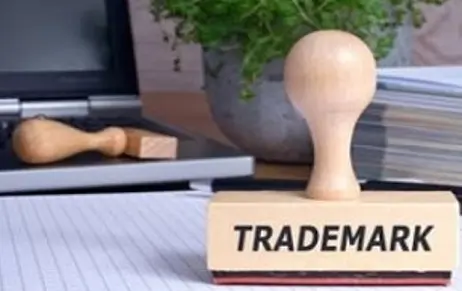TRADEMARK A trademark is something that we encounter on a regular basis. It is the…
Customs Measures Against Sale Of Infringing Goods
Course of Action to be taken:
Let us understand the process with the help of an example. Suppose a particular well-known manufacturer of say perfumes, is aggrieved by the rampant import of infringing goods in India supplied from some foreign country. The manufacturer has his trademark registered, has copyright in the artistic design included in the logo of the trademark. It can also be the case that the design of the perfume bottle is registered under the Designs Act, 2000. But let us assume that there is copyright and trademark involved in the instant case. How should the owner proceed to enforce his IP rights? Following are the steps to be taken in order to ensure maximum protection of the IP in such cases:
- If the IP is not recorded with the customs, the IP owner should immediately apply for a recordal to get their IP recorded with the customs office so that the enforcement becomes easier in the future. One would have to apply for all of the products/services for which their IP is registered.
- Further, a notice has to be sent to the Commissioner of Customs as per Section 140 of the Trademarks Act, 1999, Section 53 Of The Copyrights Act, 1957 read with Section 2(33), Section 11(1), Section 11(2)(n), Section 11(2)(u) of the Customs Act in conjunction with the relevant rules under Intellectual Property Rights (Imported Goods) Enforcement Rules, 2007 in case there is an urgent requirement and there is an intel of a suspected import. If not, the manufacturer can apply for a recordal as per rule 3 and other relevant rules under Intellectual Property Rights (Imported Goods) Enforcement Rules, 2007 so that in the future if there is an import of infringing goods, it will be suspended by the customs at the port itself.
- All these laws prescribe that if there is an import of prohibited goods, one can enforce their intellectual property rights which are being infringed under all the specific acts depending upon the IP involved, under the Customs Act, 1956 read with Intellectual Property Rights (Imported Goods) Enforcement Rules, 2007.
- After that, the Commissioner of Customs, upon satisfaction that the imported goods are prohibited within the meaning of S. 11(2)(n) of the Customs Act, will suspend clearance of the goods and then a representation has to be made as to the fact that the IP has been infringed from such an act of import. If the Commissioner is satisfied with the representation, he may require the importer of the goods, or his agent, to produce any documents in his possession relating to the goods and to furnish information as to the name and address of the person by whom the goods were consigned to India and the name and address of the person to whom the goods were sent in India. Such information may be furnished to the IP owner by the Commissioner. The IP owner will also be required to examine the impugned infringing goods with the assistance of an expert, take pictures or samples, etc. After that, a show-cause notice is served upon both the parties which is followed by a hearing that has to be conducted within 10 days which can further be extended by 10 days on request.
- The customs would have to bear costs regarding suspension, demurrage, and destruction charges of the prohibited goods. The IP owner would be required to submit a bank guarantee having a value of 110% of the value of the prohibited goods coupled with a fixed deposit of 25% of 110% of the bank guarantee for such purposes. This amount would be notified by the customs office to the IP owner whenever a consignment’s clearance is suspended. The application notice fee is 2000 Rs.
- Once the IP holder gets a Unique Permanent Registration Number after a successful recordal with the customs, the customs office will then take action suo motto whenever a product is imported through customs border and will inform the IP owner about the same.
List of Important documents and information required for the recordal procedure:
- Country in which the genuine goods are manufactured/produced/traded/exported.
- County of origin of genuine goods.
- Country of origin from which the infringing goods are suspected to be imported.
- Country of destination from which the infringing goods are suspected to be exported to.
- Name of the authorized representative who imports or exports the genuine goods.
- Valid registration certificates of the IP issued by the relevant government authority.
- Power of Attorney authorizing the advocate to represent the IP owner
- Notarized General Bond
- Notarized Indemnity Bond (indemnifying the Customs authorities against all liabilities and expenses on account of suspension of the release of allegedly infringing goods)
- Statement of exclusivity (As to the exclusive ownership and use of the IP in relation to the goods)
- ID proof
- Images of the genuine goods
- Grounds of suspension of the release of suspected goods
- Undertaking for the bank guarantee and if the IP is valid for less than a year
- Demand Draft of 2000 Rs.
It is a must for all Intellectual Property Owners to be aware of the remedies available to them at law for better enforcement of their rights. Each remedy is the most effective when applied appropriately as per the demands of the situation. This remedy as discussed above stops the consignment at the borders itself saving the hassle of suing smaller units at different locations. Therefore, it is imperative for the IP holders to get their IP recorded with the customs office to ensure that their rights are enforced efficiently.
Author: Niharika Tiwari – a student of SVKM's Pravin Gandhi College of Law (Mumbai) currently an intern at Khurana & Khurana, Advocates and IP Attorney, in case of any queries please contact/write back to us via email [email protected]. or at IIPRD.



